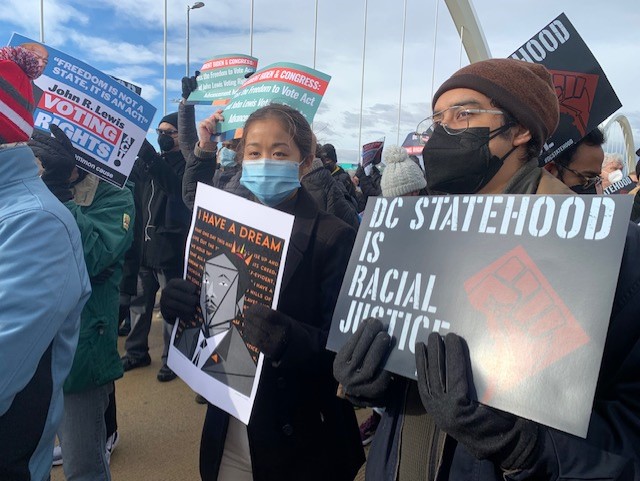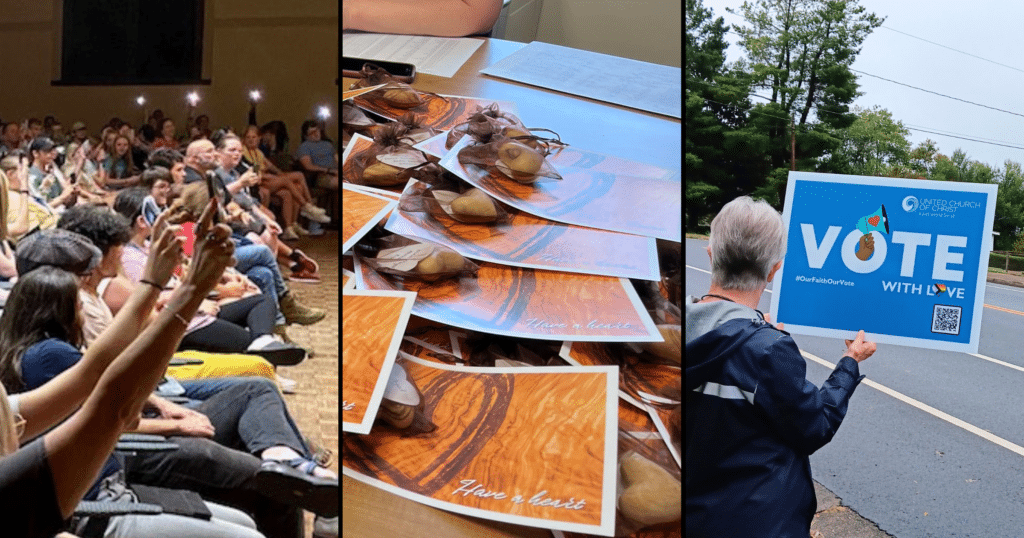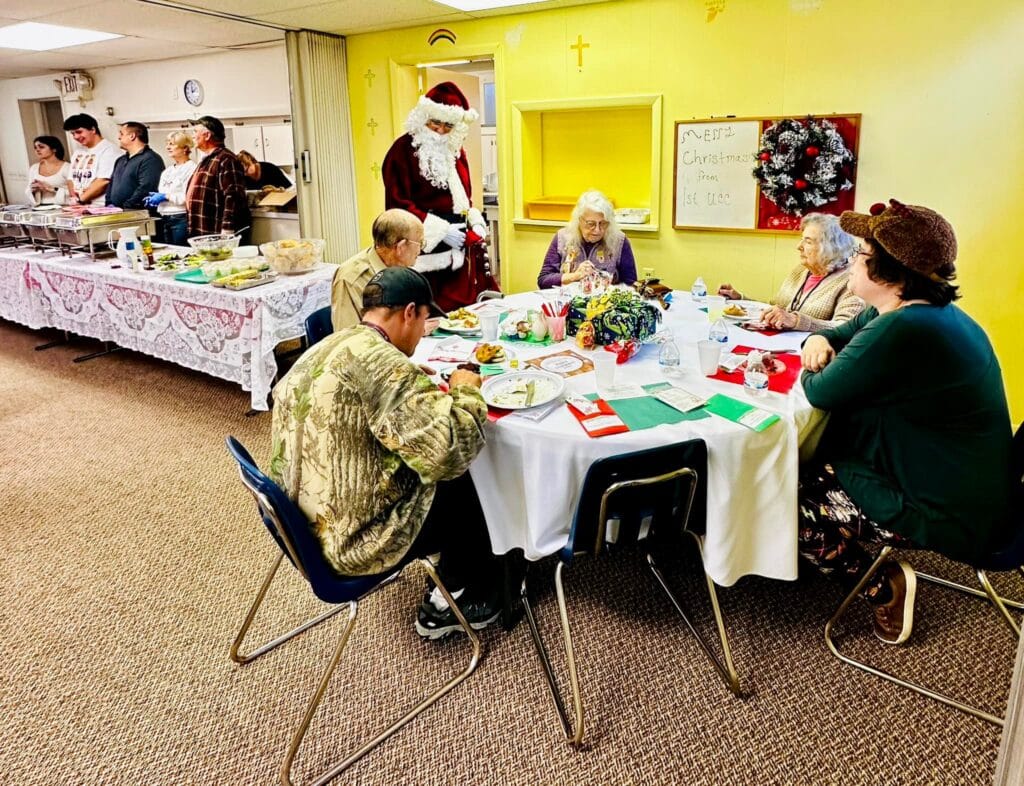MLK Jr.’s family joins hundreds marking holiday by marching for voting rights in DC
As people across the country started a day of service on Martin Luther King Jr. Day, his family took to the streets in Washington, D.C., leading a march for voting rights legislation.
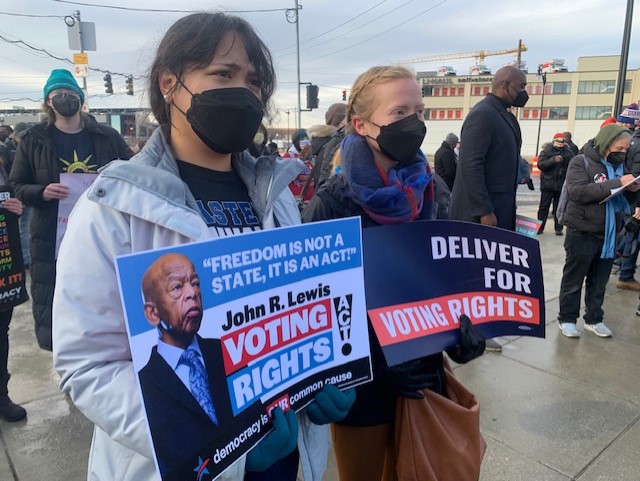
Martin Luther King III — with his wife, Arndrea Waters King, and daughter, Yolanda Renee King — joined faith leaders, civil rights leaders and voting rights activists in the annual MLK Memorial Peace March to demand voting reforms and access to the ballot box, one day before a critical vote in the Senate.
Hundreds came out braving cold temperatures and high winds, remnants of a winter storm that swept up the East Coast, to honor the legacy of the slain civil rights leader — by continuing the fight to protect the freedom to vote.
‘Powerful symbolism’
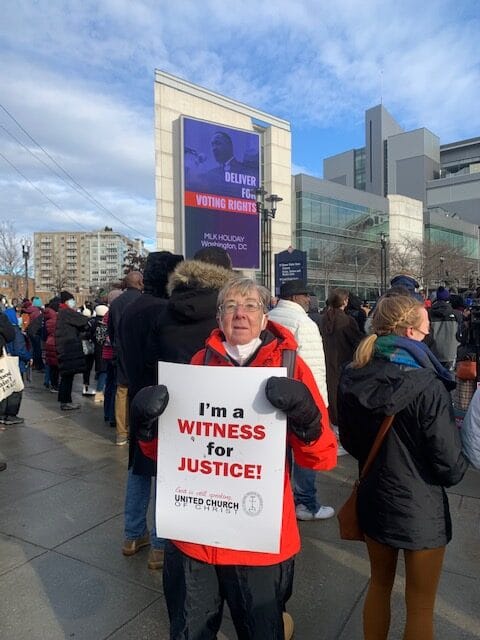
Sandy Sorensen, director of the United Church of Christ advocacy office in Washington, was there. “There was a spirit of resilience and determination among the marchers, along with the celebration of the power of good trouble and resistance to injustice embodied in the lives of Martin Luther King, Jr., John Lewis, Fannie Lou Hamer and countless other leaders in the struggle for voting rights,” she said. “Stamping my feet in the early morning cold, I had no doubt that the struggle for voting rights was too deep and too strong to falter in the face of the current challenges.”
King’s family joined the Faithful Democracy coalition’s message, saying there could be “no celebration without legislation.” Marchers called on the Senate to pass two bills already passed by the House — the Freedom to Vote Act, which would expand early and mail-in voting, setting nationwide standards for ballot access; and the John Lewis Voting Rights Advancement Act, which would restore major elements of the landmark Voting Rights Act weakened by Supreme Court rulings. Advocates carried signs urging voting reform, D.C. statehood and an end to the filibuster in the Senate.
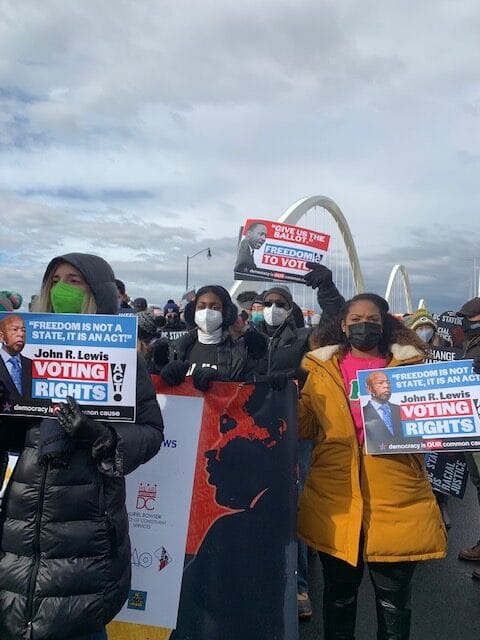
“Our vote is our voice, it represents our place in the community and our right to speak on the policymakers and policies that will impact our common life on an everyday level and reflect our collective values,” Sorensen said. “The day was steeped in powerful symbolism for me. I passed the MLK Jr. memorial on my way to the march, and we marched across the Frederick Douglass Bridge, led by the King family. It fueled me for the struggle in this urgent moment for voting rights and the integrity of our democracy. Change happens with good hope and a dream, and the courage to stay in the struggle, no matter the odds.”
Debate ahead
On Tuesday, the Senate will begin to debate legislation that combines the two bills into one act called the Freedom to Vote: John R. Lewis Act. Merging the two allows the legislation to be brought directly to the Senate floor, avoiding the filibuster.
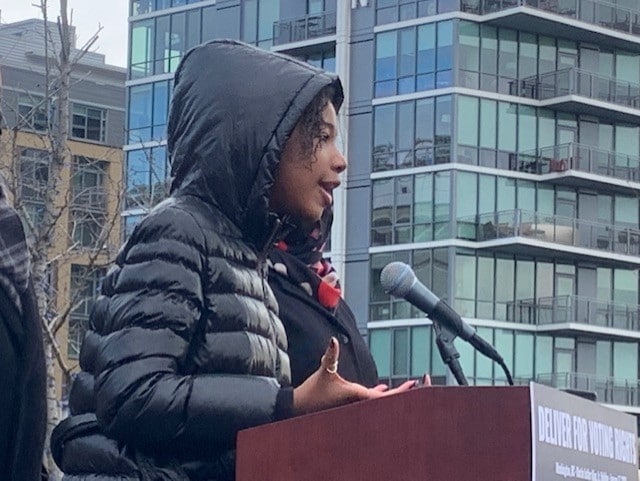
However, Republicans remain opposed to the bill and can still block it from coming to a final vote. Democrats don’t have the unanimous party support necessary to change Senate rules to pass the legislation without the GOP. Monday morning, 13-year-old Yolanda King called out two Democratic holdouts, Sen. Joe Manchin III of West Virginia and Sen. Kyrsten Sinema of Arizona, who have said they will not vote to alter the filibuster.
“Sen. Sinema, Sen. Manchin, our future hinges on your decision, and history will remember what choice you make,” she said. “So join me in demanding action for today, tomorrow and generations to come.”
Action alert
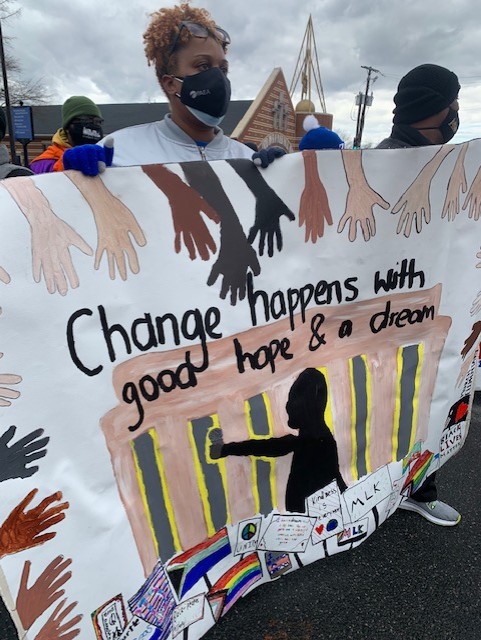
The UCC’s latest action alert urges members to contact their senators to protect voting rights. Nineteen states enacted laws in 2021 to restrict access to the ballot box and more are under consideration.
Dozens of religious leaders, including UCC Associate General Minister Traci Blackmon and the Rev. Otis Moss III, pastor of Chicago’s Trinity UCC, marked the holiday by continuing their push for voter protections. They underscored it with a hunger strike that began on Jan. 6, the anniversary of the insurrection at the U.S. Capitol. And while the 12-day fast ended as planned on MLK Day, the clergy “continue to pray for the soul of America.”
The National Council of Churches issued an urgent call for the passage of the Freedom to Vote: John R. Lewis Act on MLK Day. UCC General Minister John Dorhauer, past chair of the NCC Governing Board, considers the “voting rights bill to be the single most important matter before Congress.”
“The very foundations of our democracy are being dismantled as red-state legislators rewrite voting laws, giving new powers to state officials to overturn legitimate election outcomes and restricting voter access,” Dorhauer said. “The Senate must, by any means necessary, finish the work of the House and establish federal protections for voting rights or be remembered throughout history as those whose failure to lead ended democracy as we knew it.”
Check these four actions to take now to protect voting rights.
Related News
Year in Review: Top news highlights of 2024
The United Church of Christ News team has spent each week of 2024 delivering stories that...
Read MoreNo more lonely little Christmases: Chasing away the blues now and into the New Year
With the loneliness epidemic in the U.S. continuing to affect every one in five people, many...
Read MoreUCC Annual Report video brings to life impactful ministries
Leaders of the United Church of Christ are thrilled to share the newly released 2024 Annual...
Read More